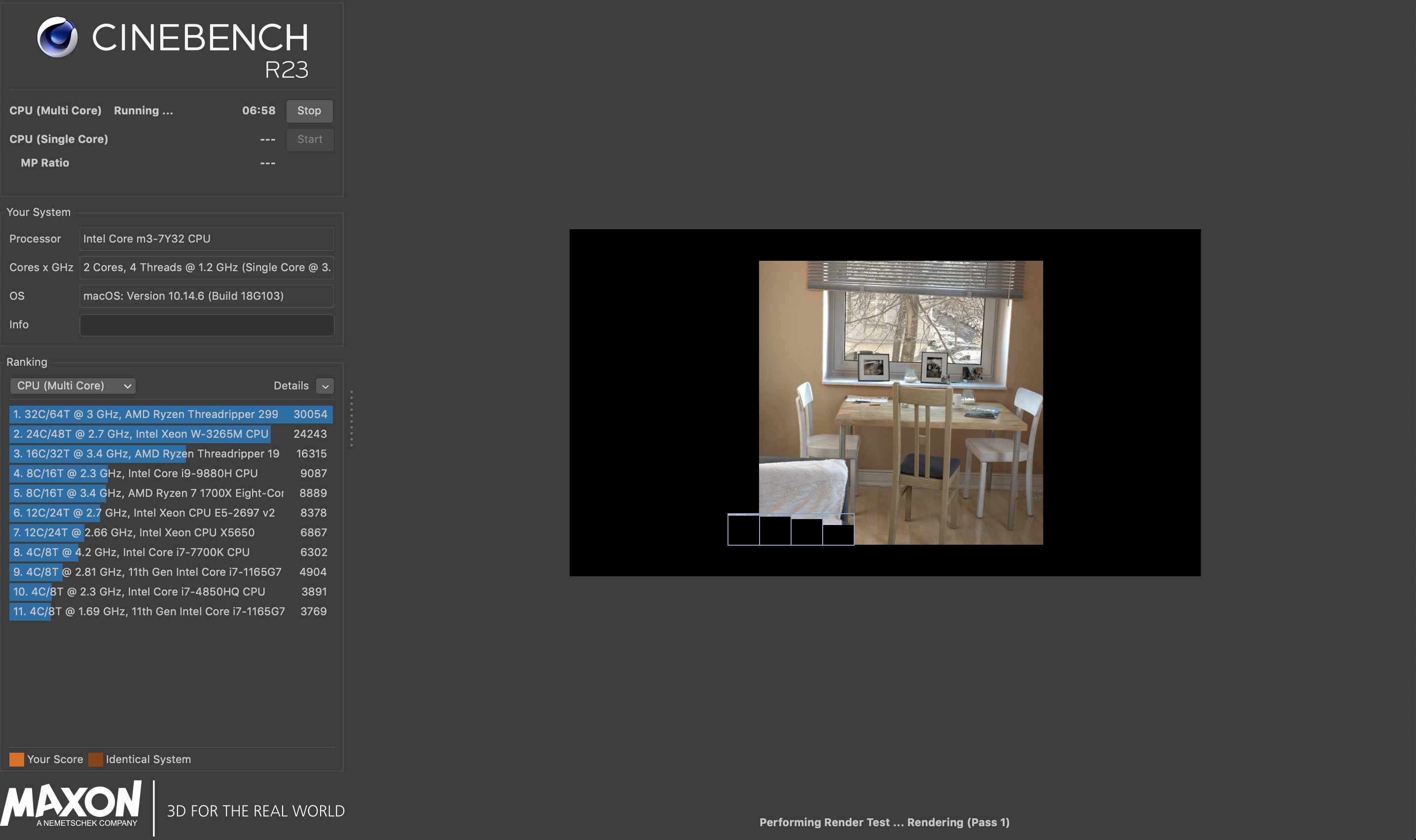Cinebench R23 benchmark adds thermal torture test and support for Apple’s new M1 chip
Let the benchmark battles commence...

One of the most popular cross-platform CPU benchmarks has just received a spot of tweakage. Cinebench R23 imposes a 10-minute thermal throttling runtime by default, as opposed to the traditional single-run sprint that has previously defined the benchmark, along with a 30-minute system stability mode. Also added is support for Apple’s new M1 chip, its first ARM processor for Mac systems.

Best CPU for gaming: the top chips from Intel and AMD
Best graphics card: your perfect pixel-pusher awaits
Best SSD for gaming: get into the game ahead of the rest
But hardware reviewers across the globe need not panic. The longer runtime test modes are optional, not compulsory. The single-run sprint is still available in advanced options. It’s also worth noting that although the revised test appears to use the same scene as the preceding R20 release, the algorithm has been updated and scores are not comparable across the releases. Time to update those CPU benchmark databases, in other words.
If you’re wondering what sort of score to aim for, early indications suggest 30,000 points for the multi-core run on the hot new AMD Ryzen 9 5950X should be your target. So get cracking.
Speaking of that M1 chip, Apple is claiming the ARM-based processor packs the world’s most powerful CPU cores. Some analysis by our sister site Anandtech suggests the M1 is an eight-wide decode monster of a machine with a truckload (technical term) of ALUs. For context, both AMD’s latest Ryzen CPUs and Intel’s Core CPUs are four-wide machines.
Although instruction decode width is far from being the only definer of CPU performance, it does represent a major theoretical advantage for Apple’s CPU cores. So it will be interesting to see how it performs in the single-core pass of Cinebench R23. If the M1 is truly as good as Apple claims, it will at the very least shift perceptions that ARM can’t compete with x86 for raw performance and make it that little bit more likely that ARM will eventually assimilate the PC at the expense of x86.
While you ponder that bombshell, you can grab Cinebench R23 here.
Keep up to date with the most important stories and the best deals, as picked by the PC Gamer team.

Jeremy has been writing about technology and PCs since the 90nm Netburst era (Google it!) and enjoys nothing more than a serious dissertation on the finer points of monitor input lag and overshoot followed by a forensic examination of advanced lithography. Or maybe he just likes machines that go “ping!” He also has a thing for tennis and cars.

